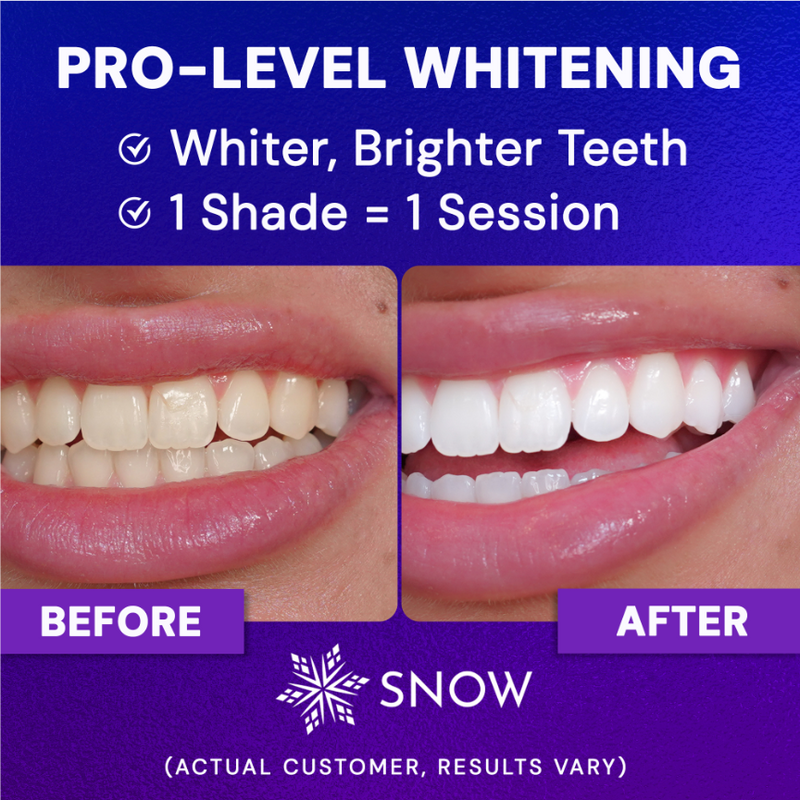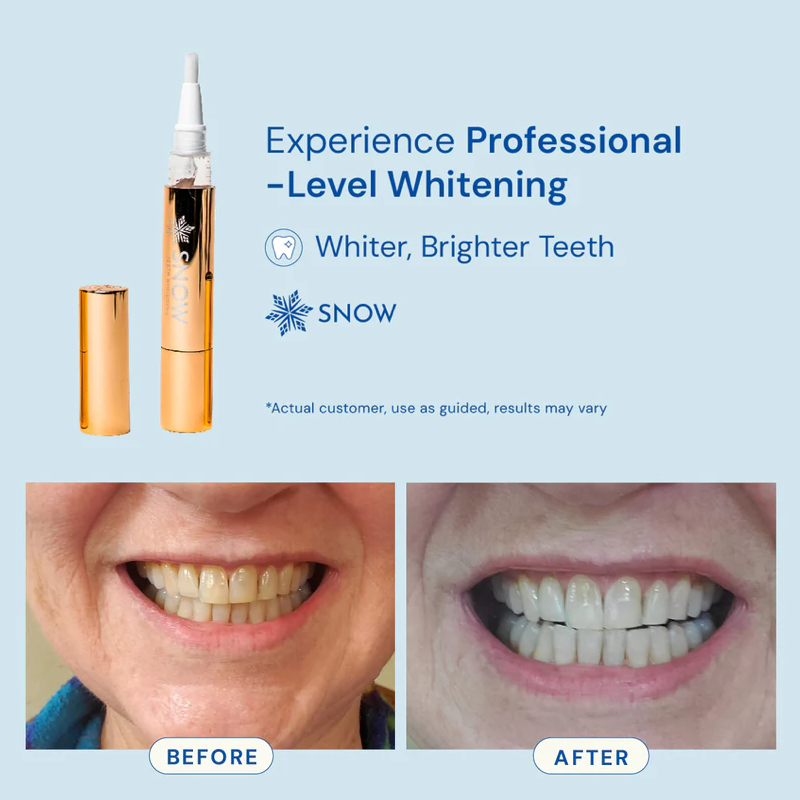There are numerous treatments for anyone looking for a brighter, whiter smile, and each offers a list of pros and cons. Some can be highly effective, but they can also be quite expensive. Others might be affordable but not as capable of brightening your smile.
Professional teeth whitening can cost a pretty penny, but one of the most effective methods that many people consider to be well worth the cost is ultraviolet (UV) light teeth whitening. These whitening methods take advantage of UV light's ability to activate the bleaching agent and make teeth whiter for a long time.
However, exposing the body to UV light is not without its safety concerns. There are some who worry that UV whitening may be potentially harmful and therefore not worth the risk.
So is UV whitening that dangerous? There's little debate regarding its effectiveness, but is it safe enough to consider seriously? As always, the truth is more complicated than a simple yes or no, so read on to learn for yourself whether UV teeth whitening is worth the potential risk for you.
WHAT IS UV TEETH WHITENING?
If you're familiar with teeth whitening in general, then you've already got the basic idea of what UV teeth whitening is. Most whitening methods employ blue light techniques, using a bleaching agent such as hydrogen peroxide or carbamide peroxide that can break down stains and brighten teeth. In UV whitening, the only difference is that ultraviolet light is used to speed the process up and make whitening gel more effective.
When a UV light is directed at the teeth, it activates the hydrogen peroxide or carbamide peroxide in a more powerful way. This activation helps the peroxide do its job better than any other whitening treatment can. This is why UV teeth bleaching may be the treatment of choice when you go in for a professional whitening.
However, it's worth noting that going to your dentist's office for your whitening is considerably more expensive than any at-home treatment. So, if you're looking to only spend a certain amount of money on your whitening, this option may not be for you.
THE RISKS OF UV LIGHT EXPOSURE
While using hydrogen peroxide on the teeth comes with its own set of potential side effects, the real reason why some question the safety of UV light whitening is the ultraviolet lights themselves. UV light may help break up stains and whiten teeth, but there are certain risks associated with ultraviolet light that keep some patients from taking advantage of this treatment:
SUNBURN
It's not necessarily the heat of the sun that causes sunburn — it's the effect of the sun's natural UV light. Not only is sunburn resulting from exposure to UV light painful and unpleasant-looking, but it can also result in permanent damage.
However, sunburn during teeth whitening isn't something to worry about, provided your whitening is performed by a professional. If your dentist is careful during the procedure, you should be safe from any unwanted burns on your skin.
SKIN AGING
UV light can cause premature aging of the skin, leading to wrinkles, liver spots, and loss of elasticity. This might take a bit of the shine out of your newly whitened smile. However, this is something that occurs over a prolonged period of time, not within the few minutes beneath UV lights that the teeth whitening process requires.
SKIN CANCER
Enough UV light can cause a mutation of the cells, resulting in the development of cancerous moles. Fortunately, melanoma is one of the most preventable forms of cancer; but one of those preventative methods is to avoid too much UV light, of course.
IS IT SAFE TO USE UV LIGHT TO WHITEN TEETH?
After hearing about the dangers that ultraviolet light is associated with, you might be a bit worried about how UV teeth whitening may affect both your oral health and your overall health. The truth is that you can use this whitening method safely, but only with professional, in-office treatment that is performed by a competent dentist.
But although skin damage and cancer aren't really valid concerns when it comes to UV teeth whitening, there are still some potential issues you should be aware of:
PROTECTING YOUR EYES DURING THE WHITENING PROCESS
One risk of UV light exposure during the whitening process is damage to your eyes. Ultraviolet light can damage your eyes if you're not careful, so make sure not to look directly into it. This is why you'll always be asked to wear protective eyewear when you receive in-office treatment.
TOOTH SENSITIVITY FROM HYDROGEN PEROXIDE
What's more likely to cause issues than ultraviolet light is the whitening gel itself. The chemicals used to whiten teeth, namely hydrogen peroxide, can cause sensitivity to hot and cold.
This issue is almost always a temporary one, but it can be unpleasant and sometimes painful, which is why you should be careful not to apply too much whitening agent.
AVOIDING CHEMICAL BURNS TO GUMS
The whitening gel used in teeth whitening procedures can also cause irritation to the gums, lips, and other soft tissues in the mouth if overused. This issue is another one that is only temporary, but it is unpleasant all the same. So, it's still important that you exercise caution.
OVERUSING TEETH WHITENING PRODUCTS
Most concerns connected to teeth whitening products can be avoided if you simply do not overdo it. You may be tempted to use at-home whitening products in addition to in-office professional treatment, but overuse of such chemicals can lead to the above issues.
That overuse can wind up causing irritation to gums and other areas of the mouth, sensitive teeth, and more light exposure than is necessary.
OTHER OPTIONS FOR TEETH WHITENING WITHOUT UV
If you're still feeling a bit concerned about using UV to whiten your teeth and you're in search of alternative teeth whitening methods, then search no more! There are plenty of options at your disposal, and many of them are listed below.
BLUE LED LIGHT MOUTHPIECES
LED lights can offer many of the same benefits that UV does while helping you avoid many of the drawbacks. At-home mouth trays use LED lights, which present far fewer risks. Just make sure that you follow the instructions to the letter when using at-home whitening kits. It can be easy to make a mistake with your at-home kit, so it's crucial to read and follow the instructions carefully.
WHITENING STRIPS
This form of teeth whitening is fairly simple and easy, and there's no LED light involved at all. Whitening strips use the same bleaching agents that are used in pretty much every other whitening process. But rather than applying the agent directly to your teeth, it's contained in an adhesive material that's applied to the enamel.
While these strips will certainly whiten your teeth without the use of blue light, it still comes with the same potential side effects listed in the section above. Speak with your dentist if you'd like to know more.
WHITENING TOOTHPASTE
This method is probably the least labor-intensive way to achieve whiter teeth. Whitening toothpaste often uses baking soda and other mild abrasives to clear away stains and give your teeth a shiny polish, but some also use the same whitening agents as strips and trays.
Whitening toothpaste can fit seamlessly into your regular oral hygiene routine, and it can be fairly effective as well. However, it's important to choose wisely when it comes to whitening toothpaste. The options offered in your local grocery store are likely not strong enough to give you that whiter smile you're looking for, and you may need a more powerful approach.
Frequently Asked Questions
Does UV light work to whiten teeth?
Whitening teeth using UV or LED light works in combination with a gel that contains teeth whitening ingredients. Solutions containing hydrogen peroxide or carbamide peroxide are used to remove stains and brighten teeth.
How long does UV teeth whitening last?
The effects should remain for around four months after the treatments are completed. The dentist utilizes stronger solutions than those available on the market for professional teeth whitening.
Why does UV light make teeth whiter?
Adding light as an extra step stimulates the molecules in the bleaching chemical, resulting in a quicker, longer-lasting color shift.
How often should I whiten my teeth with UV light?
Some products require an hour or two daily for two weeks. However, the Snow whitening LED can be used in as little as 9 minutes a day.
WHITEN YOUR TEETH WITH SNOW
If you're ready to get that bright white smile you've always wanted, SNOW is here to help. Check out our online store today for a wide selection of different whitening products, including LED light mouthpieces, which can improve your smile and boost your self-confidence.
We don't use UV light or other risky methods in our products, so if you're interested in a brighter smile but you don't want to risk skin damage, cancer, sensitivity, burns, or other issues, then check out our online store today to get started on the road to a brighter, whiter smile.






































































